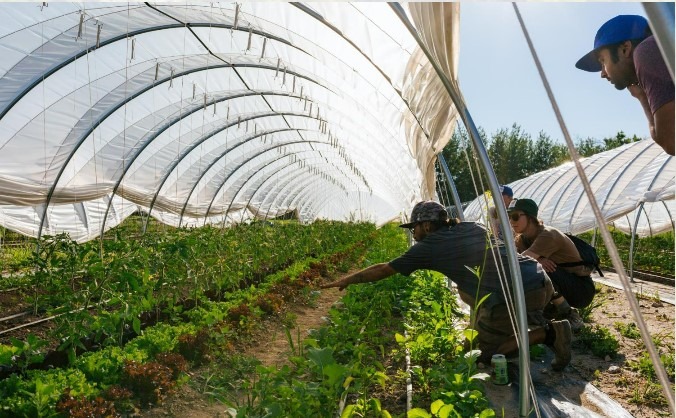
Program Contact
Taber Ward
Interim Capstone Lead
taber.ward@colorado.edu
The Masters of the Environment is a professional interdisciplinary degree program with five specializations: environmental & natural resources policy, renewable & sustainable energy, sustainability in the outdoor industry, sustainable food systems, and urban resilience & sustainability. In place of a thesis, teams of 3-4 students are matched with communities, nonprofits, or companies to complete a hands-on capstone project. The team is embedded within and works for the partner organization over a nine-month period. Capstone teams are formed to have the requisite skills and experience to take on the project and operate under the supervision of a capstone advisor working in that field. Teams typically provide a minimum of 400 hours of work per student from February through early December.
The Process
The MENV Program begins recruiting capstone partner organizations and soliciting project submissions in July of each year. MENV faculty collaborate with partners to refine project concepts and develop strong proposals to benefit both impacted communities and student learning outcomes. Capstone project proposals are due by the end of October. Projects are reviewed in depth by a team of MENV faculty, and finalists are notified in early December that they will be moving forward. Students review the projects over the winter break and participate in a networking event with prospective partners in January.
In the beginning of February, students submit a professional packet application and their project preferences. A core team of MENV faculty works to pair students with projects based on the following criteria: 1) ability of the team to meet the required qualifications and achieve the intended outcomes of the project, 2) individual student goals and preferences, 3) appropriate number of teams, projects, and advisors, and 4) interdisciplinary expertise and diversity of the student team. Team assignments are announced in February and are final.
After teams have been announced, the capstone team works on the project from February through early December. There are three phases of work. In Phase I, which takes place February-May, the team designs their scope of work and determines the deliverables and schedule to achieve the project goals. During Phase II from May-August, the team works intensively towards those deliverables. Phase III runs from September-December and is focused on final synthesis of learning, recommendations, and reports. The capstone cycle is closed out with a Capstone Symposium, a conference style event where student teams present their work at the end of November.
Proposed Outdoor Recreation Partnership
Additional Info
Fremont Adventure Recreation and the City of Canon City Economic Development office are looking to undertake an economic impact assessment to allow them to measure and better understand the economic significance of the ORE to Fremont County. In recent years, FAR and others within the community have been working to develop outdoor recreation amenities, in particular, mountain biking and hiking.
Location
in colorado
Canon City
Dates
Ongoing
Public or Private
Private Program (by request only or for a specific audience or group)
Program Fee
Not Applicable
Sponsoring Units
Graduate School
Program Partners
- Aspen Snowmass
- B Lab
- Boulder County
- City of Boulder
- City of Denver
- Colorado White Water
- Colorado Outdoor Recreation Office
- Hunger Free Colorado
- National Renewable Energy Laboratory
- Rocky Mountain Institute
- Rocky Mountain National Park
- Schneider Electric
- The Nature Conservancy
- Vail Resorts
Audiences Served
- Business
- General Public
- Government
- Historically Excluded/Marginalized/Non-dominant Group(s)
- Native American/American Indian
- Non-Profit Organization
- People Of Color
- People Who Identify As Women, Girls, and/or Females
- People With Disabilities
- Rural Communities
- Socioeconomically Disadvantaged
- Urban Communities
Topics:
- Civic Engagement (Elections, Voting, Democracy)
- Air and Water Quality
- Business/Economic Development
- Climate Change/Global Warming
- Business and Economics
- Sustainable Planning & Urban Design
- Educational Policy
- Energy
- Informal and Community Education
- Business Analysis/Forecasting
- Environmental Policy
- Physical Fitness
- Ecosystems
- Economics
- Recreation/Entertainment
- Environmental Studies
- Environmental Science
- Pollution
- Marketing
- Sustainability
- Environment and Sustainability
- Environmental Design
- Health and Wellness
- Politics and Public Policy